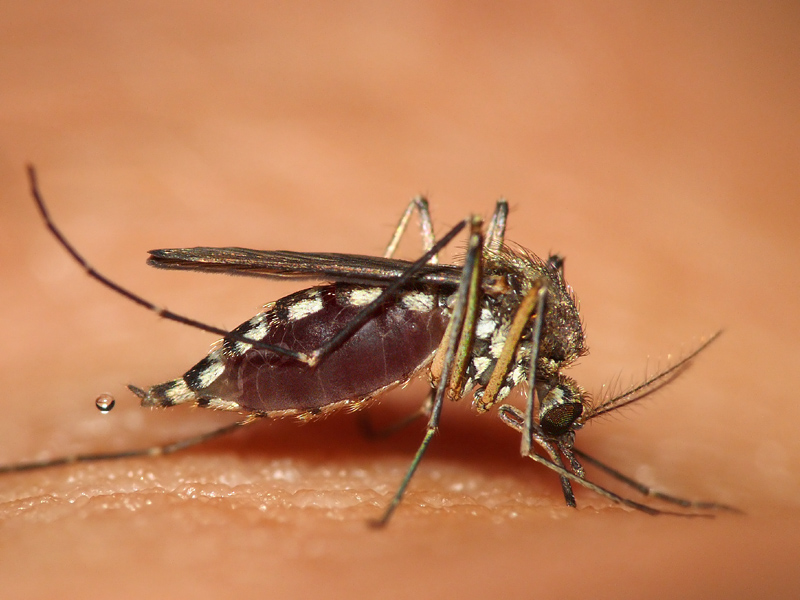There's been a study published this week in the journal PLoS Pathogens where scientists attempted and succeeded in creating a malaria-proof mosquito. And this is really exciting, because malaria kills around a million people every year, many of them children. It's caused by a parasite called Plasmodium, that infects and replicates inside female Anopheles mosquitoes, before being passed on to the next person. The incubation period in the mosquito is about 10 to 14 days.
So the group from the University of Arizona, led by Michael Riehle, genetically engineered Anopheles mosquitoes to increase the expression of a particular gene in the gut for a protein called AKT. This protein is what is known as 'highly conserved', meaning it is found in many animal groups - both vertebrates and invertebrates - to do the same thing - in this case involved in immune response and lifespan.
The researchers compared mosquito siblings with and without the engineered gene by feeding both groups an artificial blood meal containing Plasmodium. Ten days later, the team checked the guts of the mosquitoes to see if any of the Plasmodium had successfully formed oocysts, the next stage in their development.
Up to 99% of mosquitoes that were heterozygous for the engineered gene (so with one copy) were found to be parasite-free, and all of the homozygous mosquitoes (with two copies of the gene) were parasite free. There was also a 20% reduction in lifespan. This is an important point, because it takes time for the Plasmodium to develop in the mosquito to become infectious, so shortening the lifespan of the vector is an efficient way of preventing infection.
So what does this mean for the global fight against malaria? Well, Riehle's eventual aim is that engineered mosquitoes would be released, and breed with wild populations, introducing the engineered gene to reduce Plasmodium infection and shorten mosquito lifespan. This is obviously still quite a way off, but it's a really encouraging first step.










Comments
Add a comment